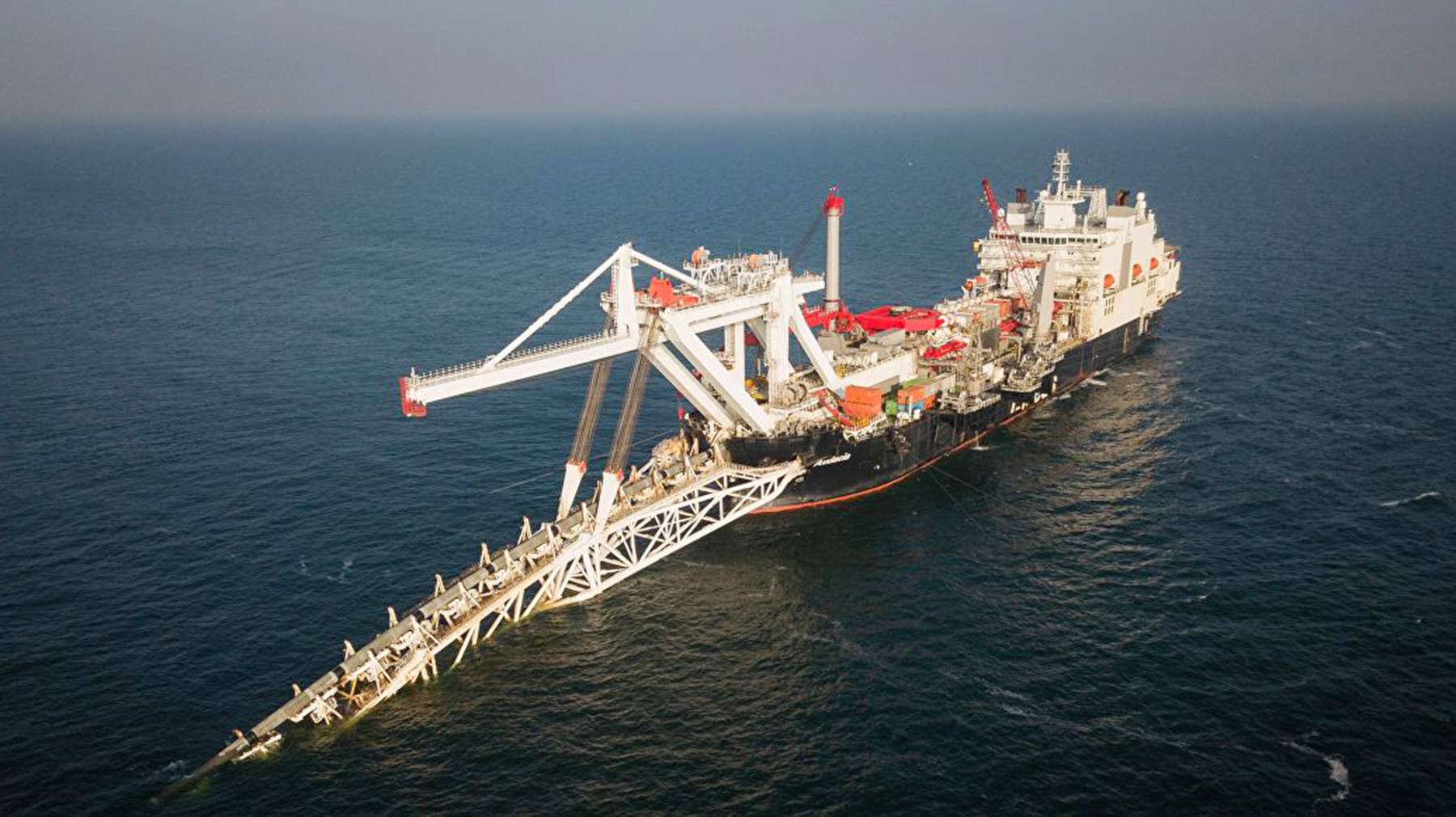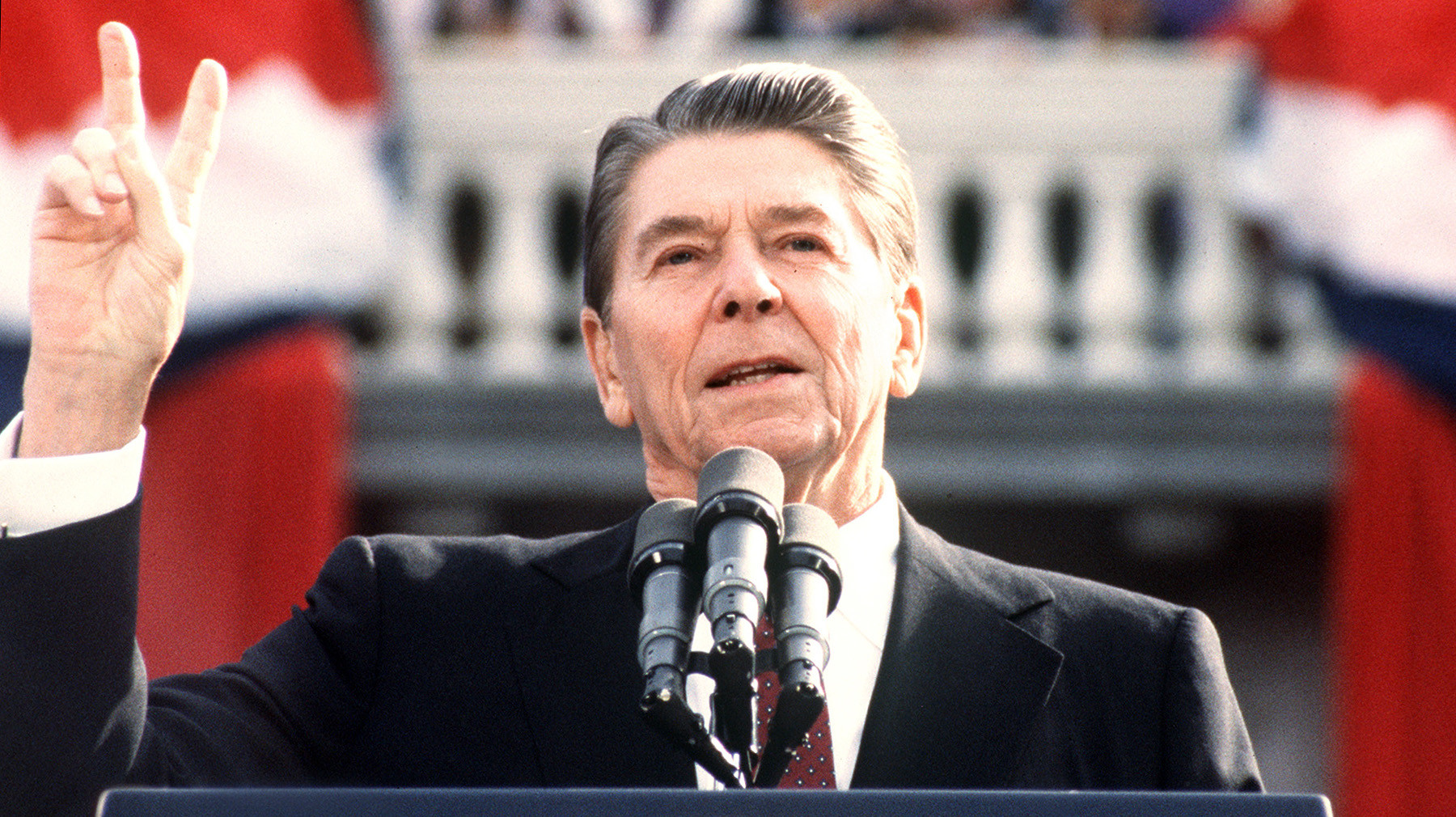Russian Presidential spokesman Dmitry Peskov called the call of the US House of Representatives to stop the construction of Nord Stream 2 as a “consistent line” of Washington and an example of “unfair competition”.
“We are talking about attempts to prevent the implementation of a purely commercial, economic project, which is in the interests of not only the gas supplier, Russia, but also consumers, primarily Germany as an EU country,” said Peskov.
On the eve of the lower house of Congress, the United States unanimously adopted a resolution calling on EU countries to refuse to participate in the Nord Stream 2 gas pipeline, as it poses a threat to “European energy security and US interests”, and also calls into question transit through Ukraine. In addition, parliamentarians called on US President Donald Trump "to use all possible measures to maintain the energy security of Europe."
As emphasized in the document, the House of Representatives of the Congress "supports the imposition of sanctions on the" Nord Stream - 2 "in accordance with Article 232 of the Law CAATSA (" On counteraction against the opponents of America through sanctions ")".
This legislation was signed by President Donald Trump on August 2, 2017 and provided for an expansion of the sanctions regime against Russia, the DPRK and Iran. In particular, the law delegated to the US President the right to impose sanctions on participants in Russian energy projects.
So far, Trump has not taken advantage of this opportunity, although he has criticized Nord Stream 2 on several occasions. The current congressional resolution calls on the president to exercise his right.
Two days earlier, the operator of the project Nord Stream 2 AG reported that the construction of the pipeline is on schedule. Already laid more than 300 km of pipes. The total length of the pipeline should be more than 1200 km. Completion is expected by the end of 2019.
The total capacity of the two threads of the Nord Stream - 2 should be 55 billion cubic meters of gas. Thus, given the similar capacity of the already operating “Nord Stream”, up to 110 billion cubic meters of gas will be supplied to Germany at the bottom of the Baltic Sea each year. m of gas.

- Vessel of company Allseas during laying of pipes on the German section of the Nord Stream-2 gas pipeline
- © Nord Stream 2 / Axel Schmidt
In addition to the Russian Gazprom, the project also includes European companies: German Wintershall Holding GmbH (a division of BASF), PEG Infrastruktur AG (a division of PEGI / E.ON), the Dutch company NV Nederlandse Gasunie, the French ENGIE, the Austrian OMV, British-Dutch Royal Dutch Shell, Finnish oil and gas company Fortum, the Czech gas transmission network operator NET4Gas, the Norwegian Kvaerner corporation specializing in offshore energy projects, and the Swiss pipe layer Allseas Group SA.
Probability of sanctions
A few hours before the adoption of the resolution of the House of Representatives, US Assistant Secretary of State for Energy Francis Fannon announced that the Trump administration is considering using sanctions mechanisms to counter Nord Stream 2 and called on all parties to withdraw from the project.
“Companies operating in the sphere of Russian energy pipelines are involved in activities, much of which is at risk of sanctions. We are continuing to consider possible sanctions actions, ”Fannon said. - The US government has the ability to impose restrictive measures on Russian energy export pipelines under Article 232 of the Law on Counteracting America's Opponents through Sanctions (CAATSA).
Two days earlier, Fannon announced that the US Congress was considering about 10 bills against the Russian energy sector, and the resolution condemning Nord Stream 2, only the first among many initiatives.
- Congress building
- Reuters
- © Jonathan Ernst
On December 5, John Bolton, National Security Advisor to the President of the United States, spoke about countering Nord Stream 2. Before him in mid-November, the US permanent representative to the EU, Gordon Sonlend, argued that Washington had not yet used "the entire set of tools that could significantly undermine the project."
An expert of the International Institute for Humanitarian and Political Studies, Vladimir Bruter, in a conversation with RT, said that the likelihood of the United States imposing sanctions on companies participating in the Nord Stream 2 project is very high.
“We should expect the introduction of sanctions. Perhaps, they will not have time before Christmas, but the sanctions will definitely be, ”declared Bruter. “Washington has seriously got down to business because it believes that the situation is beginning to take on an irreversible character.”
According to the expert, for the year that has passed since the adoption of the CAATSA law, Washington came to the conclusion that rhetorical intimidation of Moscow and its European partners do not work. Construction of the Nord Stream - 2 continued, despite all the criticism from Washington.
“Intervention Reserve”
As Vladimir Bruter emphasizes, Washington intends to put pressure on Berlin.
“This is a direct threat to a part of the German business elite, which was not set to listen to Washington. They are told that they risk putting themselves at risk of imposing sanctions, ”the political analyst noted.
According to the expert, to counter the "Nord Stream - 2" the United States can use political levers of influence, mobilizing opponents of the project.
On December 12, Norbert Röttgen, chairman of the foreign policy committee of the Bundestag, made a call to reconsider German participation in this project. A high-ranking party spokesman for Chancellor Angela Merkel, the CDU, cited an incident involving Ukrainian sailors in the Kerch Strait as a pretext for such a move.
Earlier, similar statements were made by all three major contenders for the post of head of the CDU. On the eve of the December 7 vote, when Angela Merkel resigned as head of the ruling party, the CDU General Secretary Annegret Kramp-Karrenbauer, Minister of Health Jens Span and former head of the CDU / CSU faction in the Bundestag Friedrich Merz voiced this view.
And if Annegret Kramp-Karrenbauer said it was necessary to start discussing the project and stressed that Germany could reduce gas purchases, Merz questioned the need to build Nord Stream 2 in principle.
As Vladimir Bruter notes, the December 7 vote, in which supported by Merkel Kramp-Karrenbauer defeated Friedrich Mertz with a minimum margin, suggests that "Merkel and her wing do not fully control the situation in the party." Under these conditions, the United States may try to play on the contradictions and, blackmailing Merkel and her successor with the party split, force them to toughen their positions on Nord Stream 2.
"Given the large number of American agents of influence in the German political elite, the United States has a large reserve of intervention that has not previously been fully involved," the expert warns.
Forgotten old
In turn, German Foreign Minister Heiko Maas said on December 1 that even if the Berlin leadership refused to support the project, it would still be implemented. As noted in a conversation with RT by Deputy Director General of the National Energy Institute, Alexander Frolov, this position indicates the lack of real leverage for the United States to halt the construction of the Nord Stream - 2. To impose real sanctions on European oil and gas giants is more expensive.
“The United States, introducing sanctions against companies participating in the Nord Stream 2, is actually shooting at its ally in the EU,” Frolov said. “And you can shoot at your ally only once, after which the ally will turn into an enemy.”
According to the expert, from a political point of view, the United States with such actions will only push the EU to strengthen interaction with other centers of power, also dissatisfied with the behavior of Washington, from Russia to China. Serious economic benefits, contrary to the position of some analysts, for the United States, Frolov also does not see.
American liquefied gas suppliers are focused on Asian markets, where prices are higher, the expert notes, and the volume of liquefied gas production in the United States is small.
“The 25-30 billion cubic meters they can produce is not very much,” says the expert. “Russia produces almost as much liquefied gas.”
However, the Russian Federation may also supply pipeline gas to Europe, while the United States, for natural geographic reasons, does not.
The expert recalled that in the United States since the 1960s, a tradition has emerged to counteract Russian energy projects in Europe. The last such large-scale attempt was the initiative of US President Ronald Reagan to undermine the construction of the Soyuz gas pipeline in 1981 due to the entry of Soviet troops into Afghanistan in 1979 and the imposition of martial law in Poland in 1981.
This situation led to a crisis in relations between the United States and European allies in the second half of 1982, when American sanctions were extended to European companies that participated in the construction of the Soviet gas pipeline. However, precisely because of the resistance of NATO allies, Reagan canceled these sanctions in November 1982.

- Ronald reagan
- AFP
- © DON RYPKA
Even at the height of the Cold War, the European allies of the United States - France, Germany and Great Britain - refused to support Washington and withdraw from a profitable project for themselves, experts emphasize.
“Now the interest of the EU countries in Russian gas is even greater,” notes Alexander Frolov. “Own gas production is falling, and Russia is the only country capable of ensuring the supply of the necessary volumes of gas at reasonable prices.”
Impact effect
Vladimir Bruter notes that it is still difficult to predict what the new attempts by the United States to prevent the construction of Nord Stream 2 will result in. CAATSA provides for up to 10 methods of pressure, including bans on the export of certain technologies and goods, financial transactions involving US banks, the purchase of real estate in the United States, the procurement of goods from a company under sanctions, and even a ban on entry into the United States for other persons.
“Even if sanctions are imposed, which will be sheer madness on the part of the United States, they will be imposed against companies that are directly involved in the project: these are pipe suppliers, companies providing ships and logistics,” Frolov said.
In this case, he said, the first "thanks" to the Americans would be the Russian pipe producers. There will be no critical problem with the supply of pipes due to the fact that back in the early 2000s, on the eve of the construction of Nord Stream, Gazprom upgraded this industry in Russia. A more difficult question - sanctions against companies that lay pipes on the seabed. Now these works are carried out by the Swiss Allseas Group SA, which also worked on the construction of the underwater part of the Turkish Stream.
“You can get out of this situation too,” the expert notes. - Either attract alternative companies, or change the tenants of the courts. But even if the builders are affected, this will not lead to a halt in construction, but will only delay the implementation of Nord Stream 2, which is a project of high importance for a number of major European countries. ”

